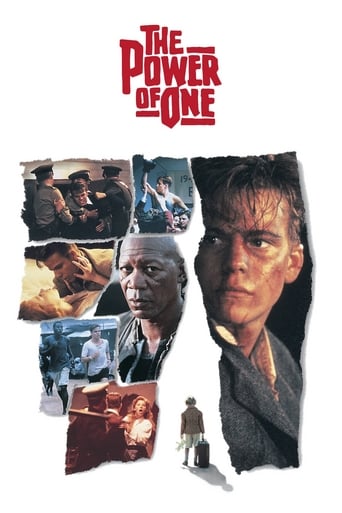


The Power of One
PK, an English orphan terrorized for his family's political beliefs in Africa, turns to his only friend, a kindly world-wise prisoner, Geel Piet. Geel teaches him how to box with the motto “fight with your fists and lead with your heart”. As he grows to manhood, PK uses these words to take on the system and the injustices he sees around him - and finds that one person really can make a difference.
-
- Cast:
- Morgan Freeman , Stephen Dorff , Simon Fenton , Guy Witcher , Armin Mueller-Stahl , Alois Moyo , Marius Weyers


Similar titles

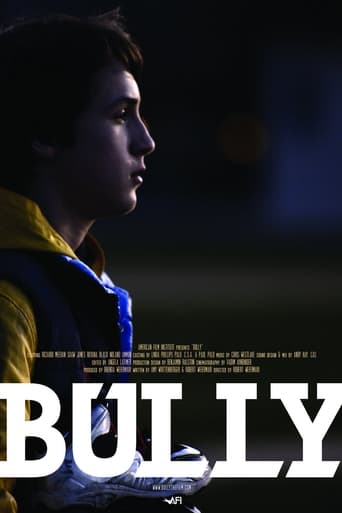
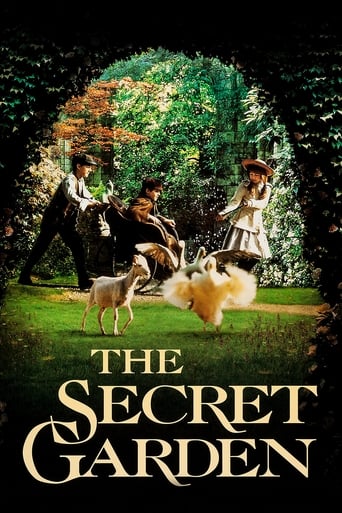
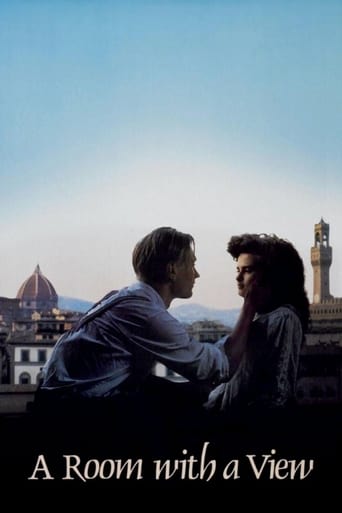
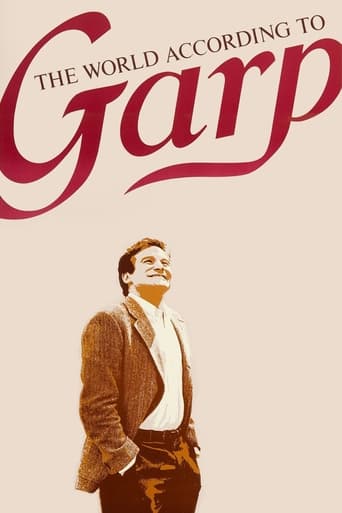
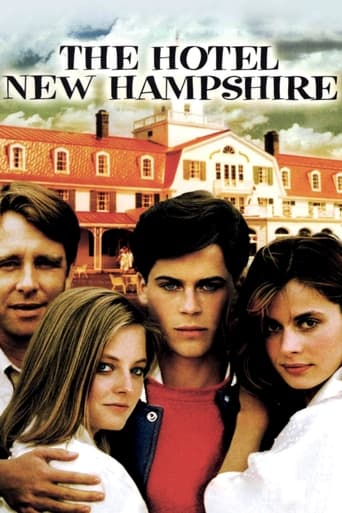
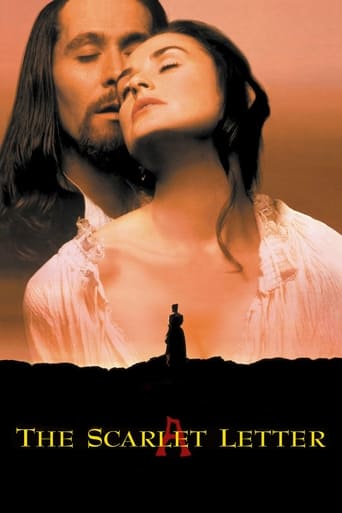
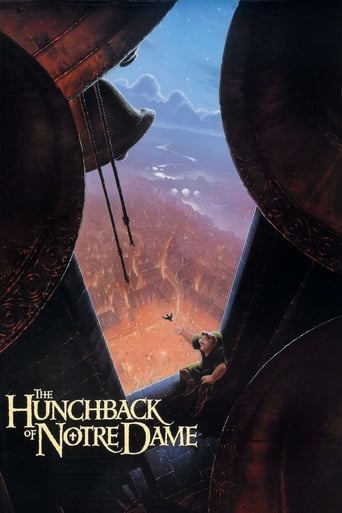
Reviews
You won't be disappointed!
I cannot think of one single thing that I would change about this film. The acting is incomparable, the directing deft, and the writing poignantly brilliant.
A movie that not only functions as a solid scarefest but a razor-sharp satire.
The storyline feels a little thin and moth-eaten in parts but this sequel is plenty of fun.
One movie I remember watching was called The Power of One. It was a 1992 film that was based on the novel of the same name by Bryce Courtney. I remember in high school how I had to read that book as a part of the curriculum. The book concerned a young boy named PK (Peekay). PK was a young English-speaking South African boy who was sent to this boarding school after his mother had a nervous breakdown. To say that the experience was bad is an understatement. he gets confronted by a ruthless bully named Jaapie Botha, an Afrikaner who despises people of English descent due to some past war. As you would've guessed, he treats PK like trash throughout his stay at the school, even to the point of killing his pet chicken. Eventually, PK becomes interested with becoming the top heavyweight boxer in the world. We follow the story from his humble beginnings as we watch him inch his way up. For the book as much as I don't like some of the books I am made to read as part of the criteria, I did find myself liking the book. However, I remember my teacher saying to stay away from the film adaptation as it was nothing like the book. And she was right. While the movie was by no means bad, I felt that it missed the point of the book by making it into some generic la resistance movie. A major recurring element in the film adaptation is the Apartheid, which was kind of like how segregation was like over in the US but slightly worse. While the Apartheid was mentioned in the novel, it didn't play as much of a crucial role as PK wanting to become the top heavyweight champion was his continual goal. In fact, in the movie, he hardly brought up being a heavyweight champion as his primary goal. Instead, it gets pushed to the side so PK could try to take down the rulers of the Apartheid regime. With Jaapie Botha, his role slightly changes as well. In the film, he is still deeply prejudiced against PK because of his English descent and kills his pet chicken, but here, he actually gets kicked out of school rather than finishing it like in the book. In the film, he becomes a sergeant for the villainous Colonel Breyton, so that actually makes Jaapie a little more intimidating than his book counterpart who doesn't as much as get that kind of high position. As for changes, while I do understand that some changes and revisions must be made when adapting a novel into a film, here, I ultimately found myself loathing the changes. From the more stupid, I personally hated the fact that they decided to rename PK's pet chicken to Mother Courage. Just why? Why was this necessary? As I said making the film into a typical fight the power flick is doing the book some real disservice, and then you have the cliched romantic relationship that PK had, which doesn't even last long as she gets killed during an attack by Jaapie and his men. The worst change that I utterly despised, however, was PK's relationship with Doc. In the book, Doc was kind of like a father figure to PK as he mentored him. Really, Doc contributed a lot to making PK the man he was now. In the book, he gets arrested because of being an illegal immigrant, and it was traumatizing for poor PK; he even got his lower jaw broken as he tried to stop them from taking Doc. Eventually Doc returned and continued to teach PK before he died. In the film, however, he never came back. To me, it came off as just insulting. It really angered me because they made it seem like PK's relationship with Doc was nonessential to the whole story when that clearly wasn't the case. Aside from other differences between works, I didn't find them as problematic as this one. Overall, not a bad film, but it is a poor adaptation that relies on a cliche action plot, has poorly developed characters, and is overall the Power of One in anything but name.
It's 1930 and PK is born 3 weeks after the death of his father. His mother struggles to maintain the farm. The penniless English boy is sent to an Afrikaans school. As the only English in school, he is brutally bullied by the Nazi loving Afrikaan boys. His mother dies and he is befriended by his grandfather's friend German exile Professor von Vollensteen 'Doc' (Armin Mueller-Stahl). When war breaks out, Doc is arrested as an illegal German despite the fact that the Nazis have killed all of his family. While spending most of his days in prison with Doc, he is taught boxing by Geel Piet (Morgan Freeman) and witnesses the cruelty against the prisoners. Geel Piet calls him the Rainmaker, the prophesied one who brings unity to all of the tribes. After the war, Doc goes home to Germany. PK (Stephen Dorff) goes to an English private school run by headmaster St. John (John Gielgud) where he falls for Maria whose father Professor Daniel Marais is a leading politician of the Nationalist Party of South Africa.Director John G. Avildsen does a reasonable job. The first half is a great movie. PK as a kid in the school and in prison is very compelling. I like the narration which gives it a feel of a fable. The prison actually makes PK a myth. The second half loses some of that sense. The second half is complicated by a romance and an unnecessary return of a character from the school. The combination makes the movie smaller while trying to take on such big issues. The boxing scenes aren't the best either. There are some of the best actors of all times at work here. Daniel Craig makes his debut. It's set up for it to be a great movie but turns into something less.
First, I'll state the obvious: Avildsen's film adaptation of Bryce Courtenay's novel of the same name is complementary. However, it does lack in some key areas. Specifically, the film version has been altered far too much for my liking. In the end, those changes proved to be detrimental.For sure, the director shouldn't have departed from the novel's superb plot. Perhaps, he did this to gain a wider audience's appeal. And he did do just that judging from the many positive reviews given. Many of those reviews were even written by a much younger generation too. I've noted that reviewers are disparate: critics and fans alike chimed in from all over the globe. That's good, I suppose.Still, the movie is found wanting. Avildsen has corrupted much of the novel's political/social context. For example, Avildsen depicts the Boer (Dutch farmer) or Afrikanner in the thorniest of light, without exception. Most times, the Boer personage is seen and heard almost exclusively as a carbon copy of the European Nazi. To him, the character's role is inconsequential even if it's a bit part. They're all the same. And they all bark along with the ability to spew even venom.The Afrikanner's strong affinity (supposed) for Hitler's movement is correlated to their equal zeal for the German's quest for racial purity. No doubt that same zeal is rooted in the Boer's religious fanaticism. Avildsen, even takes sore pains to make this same point though rather pointedly on young Jappie Botha's @ss! Ouch!The film from the beginning and throughout makes us fully aware of the Boers' national character flaws. What Avildsen neglects to inform us is, 'apartheid' began long before the National Party took office in 1948. Even the English South African or 'Rooinek' had a helping if not equal hand in setting up the strict racial divide in South Africa.The real truth is this: wealthy and powerful elitists amongst the 'rooinek' ranks were altogether instrumental in crafting first and lasting segregationist precedents. Although they did so unwittingly (Of course they did!). Witness the olde 'Union of South Africa'. Even way back then the British gladly evicted from a train (some say forcibly) the ultra pacifist and soon to be world renowned social reformer, Mahatma Gandhi.Gandhi though, didn't even bother to turn the other cheek. Wisely, he packed his meager belongings and then fled the country while both halves were still intact; what cheek!Avildsen does not do the novel real cinematic 'justice'. To wit, he made far too many factual errors either by omission or commission. This film could have been a real cinematic masterpiece. All he need do was stick to the novel's noble plot: despite much personal tragedy and daunting odds the human spirit yet triumphs. That much is true, if one recognizes the power of one/oneness.Still, there are some bright spots, even flashes of brilliance. Morgan Freeman's portrayal of the incorrigible Geel Piet is electrifying. The veteran actor rightly deserved at least three Oscars. His stirring performance was altogether unforgettable.The others were cast perfectly. Steven Dorff, as the mature Peekay delivers a pretty good 'eight punch combination'. His portrayal of the main protagonist was credible. Soon, I could identify with his (PeeKay's) struggles, disappointments and belated successes.The most pleasant surprise came from an unlikely source. Probably for many viewers, it also came from the the least liked character: chief antagonist, Jappie Botha (Sgt.). Daniel Craig not only supplied the muscle but he also handled the difficult Boer accent with ease.Craig's expressions and working the scene props were performed with so much naturalness. I still see him today as he appeared then: the hate filled, unrepentant and revenge minded S.A.P. blind state loyalist.Fittingly then, and almost by fate, Craig Bond's first 30 minutes of cinema fame came with distinction. Maybe that's not really the case; the truth is, Jappie was real bad. Craig, showed us his every ugly side too.The film had many memorable moments. One occurred during a police raid of Alexandra, a black township. At last Sgt. Botha has caught the elusive Peekay, injured and alone. A crazed Botha addresses his captive."Oh, I'll take you (Peekay) in... I'll take you in, when you're dead."In summary, if not for Avilden's much spin and radical departure from the original script, I could have easily awarded 10 spangled stars, possibly five more.Alas...
This movie was one of the most incredible movies I have ever seen! My teacher had us watch it in 5th grade, and ever since then I have owned the movie and recommend it to everyone. And I still cry. It is a moving story about a boy with no one left to care for him except Doc, a German pianist who is put in jail for not registering with the South African government. P.K learns how to box from the prisoners in the jail and turns to boxing in a society that doesn't accept him. Throughout the movie P.K learns lessons about life in South Africa and loses many things. It is a great representation of the culture of the time. The cinematography was well done and make the movie even more Amazing! I would recommend this movie to anyone. It will make you cry and move you beyond words. It will change your view of WWII in Africa and Apartheid.
